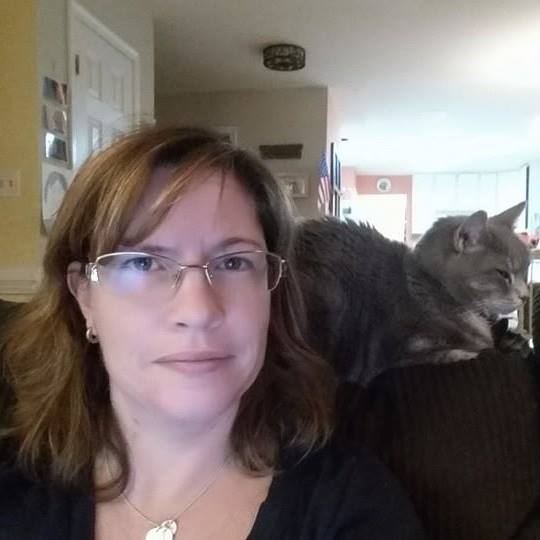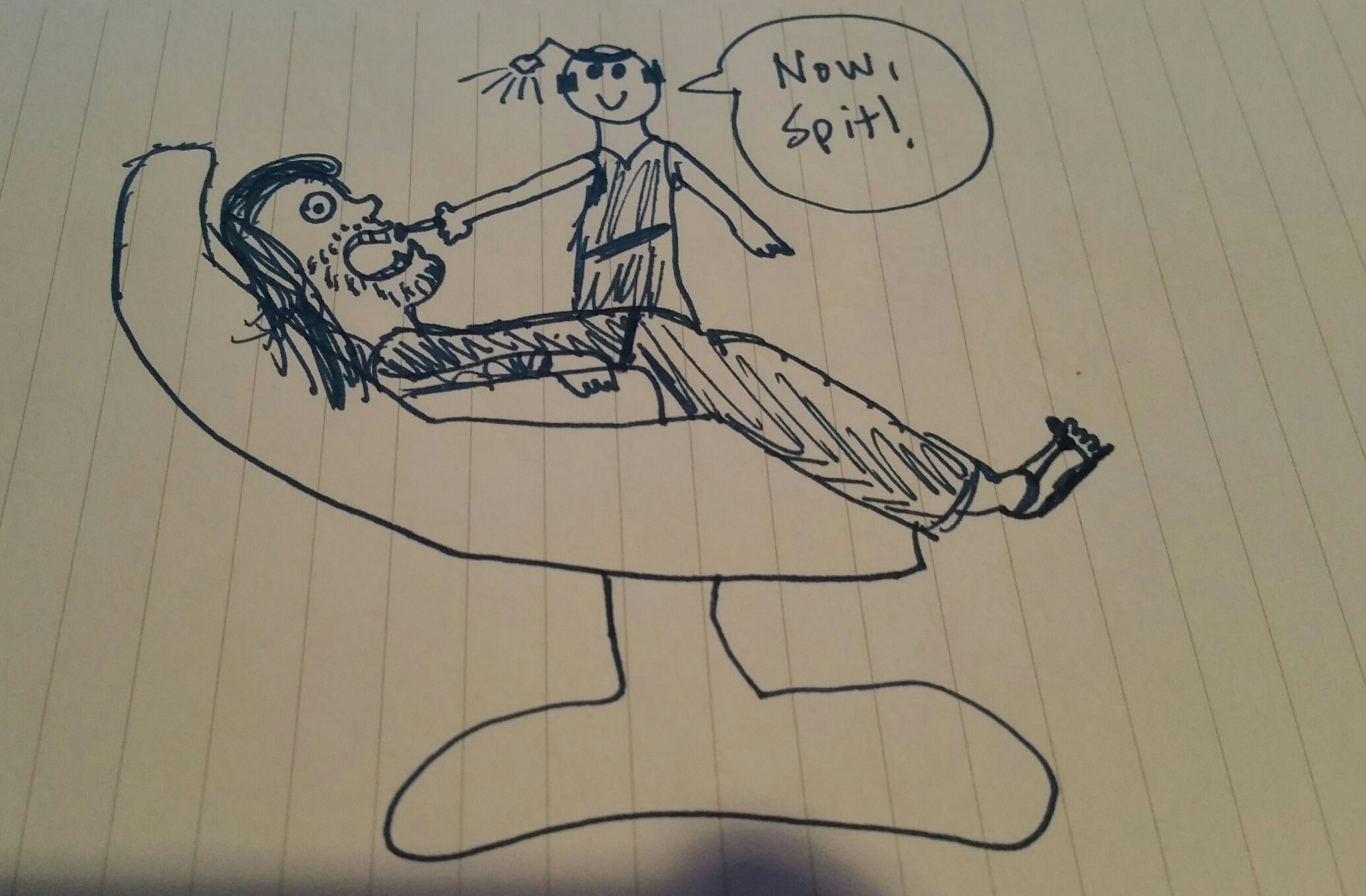Thank you, Michael Moore. Thank you for saying much of what I’ve been thinking for the last week in this article you wrote, but haven’t gotten my act together enough to write myself. I think you got the racial analysis wrong, but I love the rest of it. Thanks for admitting that the NRA’s justification that the only one who stops a bad guy with a gun is a good guy with a gun has merit. That even with the best of precautions and intentions, these tragedies will continue to happen. Thanks for pointing out that what’s missing in our society has a lot to do with the way we view one another and our responsibilities towards others. “That other civilized countries see a national benefit to taking care of each other” and we seem to resist that line of thinking when it comes to national policy is a powerful and profound suggestion.
Thank you, Chris Cataudella. Thank you for writing from a gun enthusiast’s perspective about practical ways to averting another atrocity like the Newtown shooting from happening again (and for canceling your NRA membership.) Thanks for suggesting that gun owners should be required to have safes, and offer proof of proper storage of those guns. Thanks for offering up the common sense ideas of linking mental health databases with ATF computers and including more thorough checks of anyone applying for a gun permit. A national licensing fee for gun owners is also logical. I’d go a step further to say that anyone with permits should have to re-apply annually, with that thorough check performed each time.
I’ve been troubled by, among other things, the rash of “Don’t Blame-itis” I see. “Don’t Blame Gun Owners.” “Don’t blame Autistic people.” “Don’t blame the mentally ill.” (As a side-note, I never understood the “Don’t Blame Me – I voted for Bush!” bumper stickers. Why would I place responsibility for my misfortunes on someone who voted opposite me and lost?) I understand everyone’s knee-jerk defensive reactions to the Newtown shooting, but submit that I empathize much more strongly with the “Don’t blame Autistic people” than the “Don’t Blame Gun Owners” side. Historically, mentally ill people have been much more systematically abused and ignored as a group than, say, gun owners have.
I’d like to offer a shift in thinking, though. As I’ve mentioned to my kids (not often enough, I’m afraid) – when your impulse is to say, “It wasn’t my fault!” change the word “fault” to “responsibility.” Was what happened my “fault?” Maybe not. Was what happened my “responsibility?” Sometimes. Did I do everything reasonably possible to carry out my responsibility? Often, I’m afraid, no.
American society could use a cleanse – a detox, so to speak. Just like junk food is poison for the body, and linked to many physical problems, I consider much of what is in the world of media to be poison for the mind. Intellectual, emotional junk food. Too much of it wreaks havoc on our society’s mental well-being. Just because “Toddlers and Tiaras” is on television, doesn’t mean it should be watched. Just because “Grand Theft Auto” is available for purchase, doesn’t mean it should be bought. Just because a six-year-old trauma victim can be interviewed, doesn’t mean he should be interviewed. Part of the benefit of a physical cleanse is that it shakes up our systems and resets our metabolism. I can’t think of anything America’s collective psyche needs more.
I’m a big fan of thinking outside the box. What hit home with me most in Michael Moore’s piece (and I disagree with a lot of what he writes) is his take on poverty. Not to channel Karl Marx or anything, but maybe we DO need an updated, less flawed version of the Communist-like vision. I’m not proposing a thought control/conform or die mentality, but more national introspection about how and why the wage gap in America is so obscene. Let’s take a look at the major things – necessities – in our society that are grossly exploited and perversely for-profit ventures. Education. Health Insurance. Medicine. Food production. Pharmaceuticals. Information dissemination. Access to these things should be a given in our society, advanced as we claim to be. Access to healthy versions of all of these things should be the floor, not the ceiling.
I’m, of course, at a loss as to how these things can be accomplished in a country as large and complex as ours. How do we keep our rights AND our children safe? How do we reconcile the backbone of our country (“Anyone can make it!”) with it’s heart (“Everyone SHOULD make it”?) How do we dictate the appropriate limits on technology and the free market? How can we exhibit patience and foresight needed to determine whether a discovery should be implemented just because it can be? My father once wrote, “technology advances faster than our wisdom in knowing how to use it.” How can we counteract that self-destuctive societal tendency?
I think we should be willing to consider ANYTHING to be on the table for discussion, from the micro to the macro, regarding where we go from here.
Remember how Warren Buffett suggested we balance the budget? Make members of Congress ineligible for re-election if they don’t. Beautiful. Simple. I love ideas like this that shake up the status quo. So to address poverty, is it possible to require that a CEO’s salary is directly proportional to his or her lowest wage earner’s? As the CEO’s salary goes up, so must his or her workers’? CEOs whose profits exceed a certain reasonable amount are required to contribute financially to the education of its workforce? Boards of Directors must distribute bonuses to its lowest wage earners first before anyone else? From the bottom up rather than the top down? This applies to every field from textbooks to stocks to food production to technology. Might mediocrity be rewarded in such a set-up? Yes. But one thing we also know from experience is that obscene wealth of the few rarely translates into well-being of the rest. What can we do to make the mentality of James Senigal (CEO of Costco) more prevalent than the Walton (owners of Wal-Mart) family’s?
As long as I’m throwing ideas out there, in addition to limits on perverse amounts of profit, I’d like to see a limit set on the media. Is it possible to create a regulation wherein the media is not allowed to approach any crime or trauma victim under the age of 18 OR THEIR CARETAKERS for interviews until six months or a year after the event has taken place? Can we limit our voyeuristic desire for every detail be transformed into protecting victims and privacy and acceptance of knowing just what we need to know? Do we immediately need to know what a six-year-old heard and saw throughout these atrocious events? No, we don’t.
Just like a kid’s not doing his homework or chores, we are a society that needs to accept responsibility for ourselves, and assume responsibility for others in order to grow up. A step towards this goal might be to stop thinking in terms of what we have to lose, and start thinking in terms of what you have to GIVE. If gun owners can cancel their NRA membership, and Michael Moore can parrot the NRA’s philosophy with a straight face, what do the rest of us have to offer? Can we open our minds a little more? Can we try to see another’s point of view? Can we recognize value in those arguments with which we disagree? These are not new suggestions – we hear them over and over again. People young and old, however, need to hear messages repeatedly before they take hold. (I can’t tell you how many times I’ve had to be told to initiate the sit-up movement with my abs before I actually internalized that one…) I feel a lot like a kid lately. I have a myriad of questions and not many answers. On the other hand, the wisest, most mature people I’ve met are the ones who admit how little they know. So, while I wouldn’t call myself wise, maybe I am growing up after all. I hope the country grows up, too.















